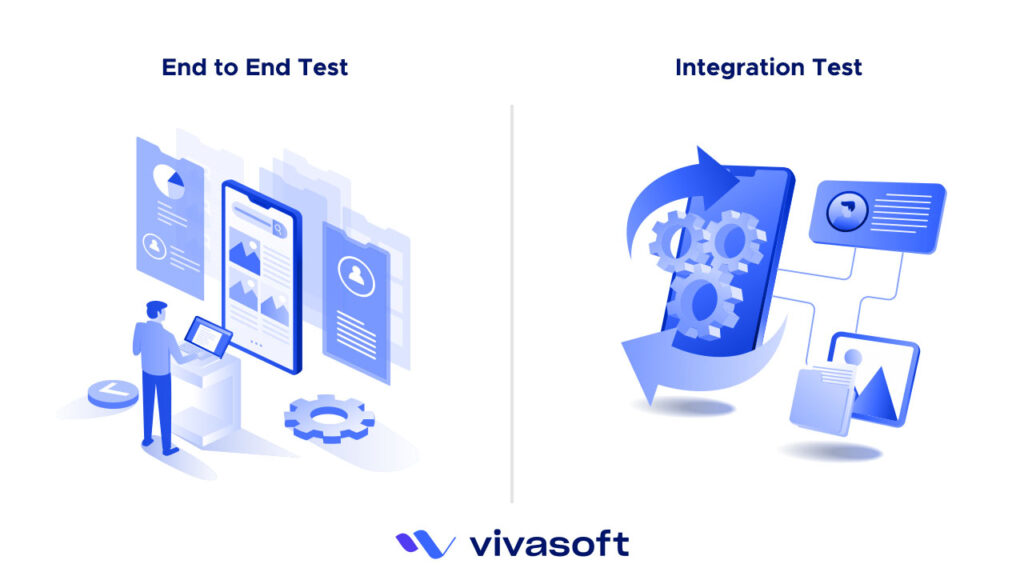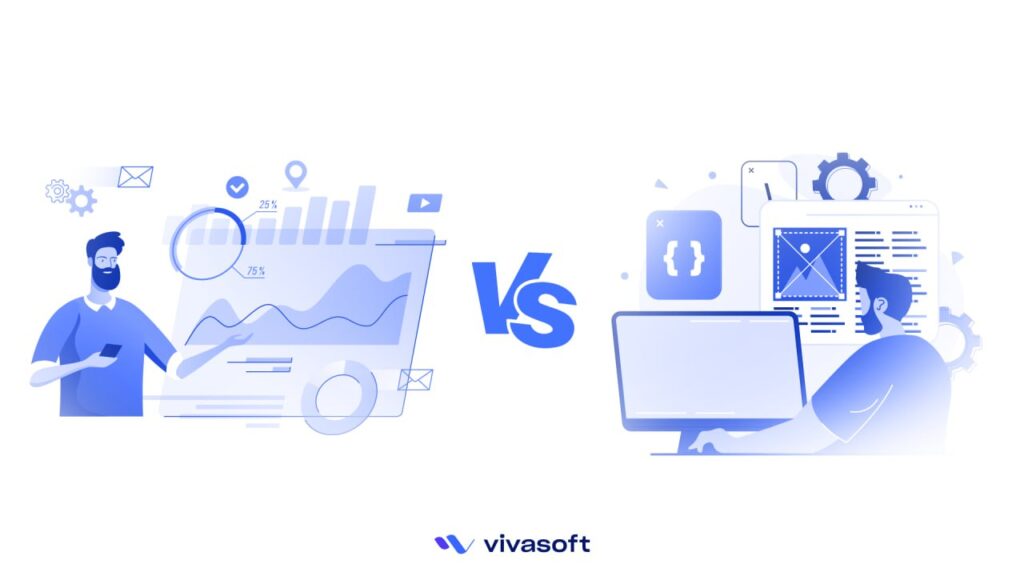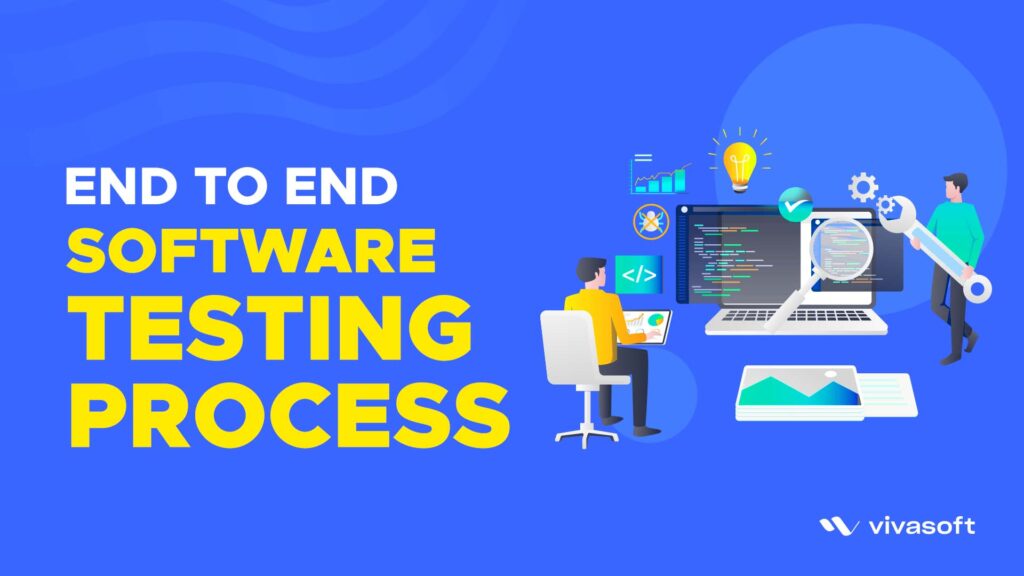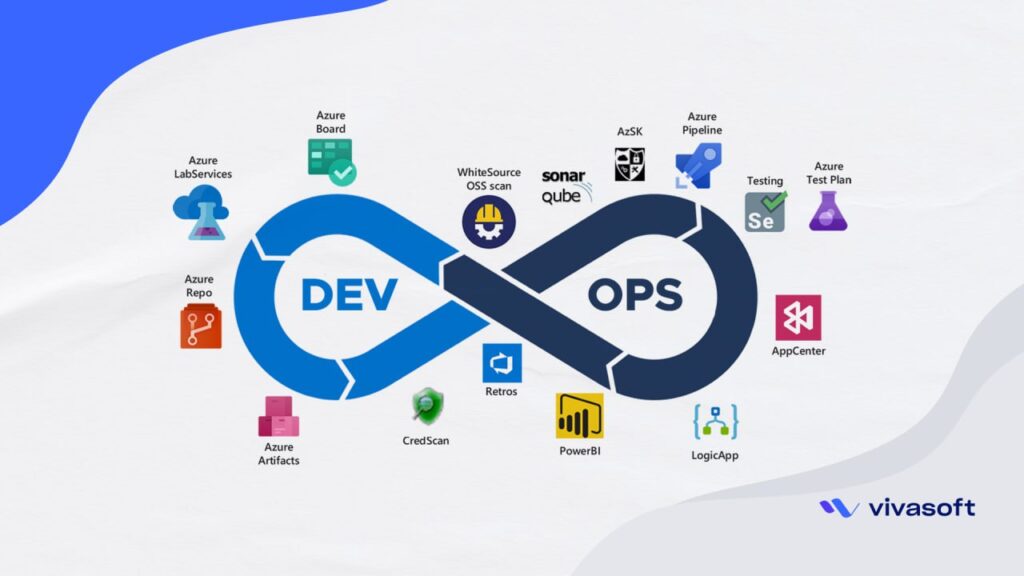If your business requires developing tech products and services every now and then, you must have already faced the in-house vs outsourcing dilemma.
In today’s digital world, businesses rely heavily on software applications to run their operations. Building and maintaining these software applications require skilled developers who can deliver high-quality code on time and within budget. When it comes to software development, businesses have two options: in-house development or outsourcing the work to a third-party software outsourcing company. Both the alternatives have their own pros and cons. To keep the business running and make a decent turnover, you must know and weigh the advantages and odds correctly for making the right decision.
In this article, we will discuss the advantages and disadvantages of both options and factors to consider when choosing between them.
Pros and Cons of In-House Software Development
In-house software development refers to the practice of having an internal team of developers to build and maintain software applications. In this process, the company hires a team of developers permanently. The following are some of the pros and cons of in-house software development:
Pros
-
Complete Control:
With an in-house team, businesses have complete control over the development process, from design to deployment. They can monitor the progress, make changes quickly, and ensure that the final product meets their specific needs and requirements. -
In-House Knowledge:
In-house teams have a better understanding of the company’s business goals and objectives. They can work closely with other departments and stakeholders to ensure that the software application aligns with the company’s overall strategy. -
Security:
In-house development provides better security because sensitive information stays within the company’s walls. Confidential information is less likely to leak to competitors or hackers.
Cons
-
High Cost:
Building an in-house development team requires a significant investment in recruitment, training, and infrastructure. This can be expensive, especially for small and medium-sized businesses. -
Limited Resources:
In-house teams may have limited resources and expertise, which can impact the quality of the software application. They may not have the necessary skills to tackle complex projects or work on emerging technologies. -
Risk of Staff Turnover:
In-house teams are prone to staff turnover, which can disrupt the development process and delay the project’s completion.
Pros and Cons of Outsourcing Software Development
Outsourcing software development refers to the practice of hiring a third-party company to develop software applications. The following are some of the pros and cons of outsourcing software development:
Pros
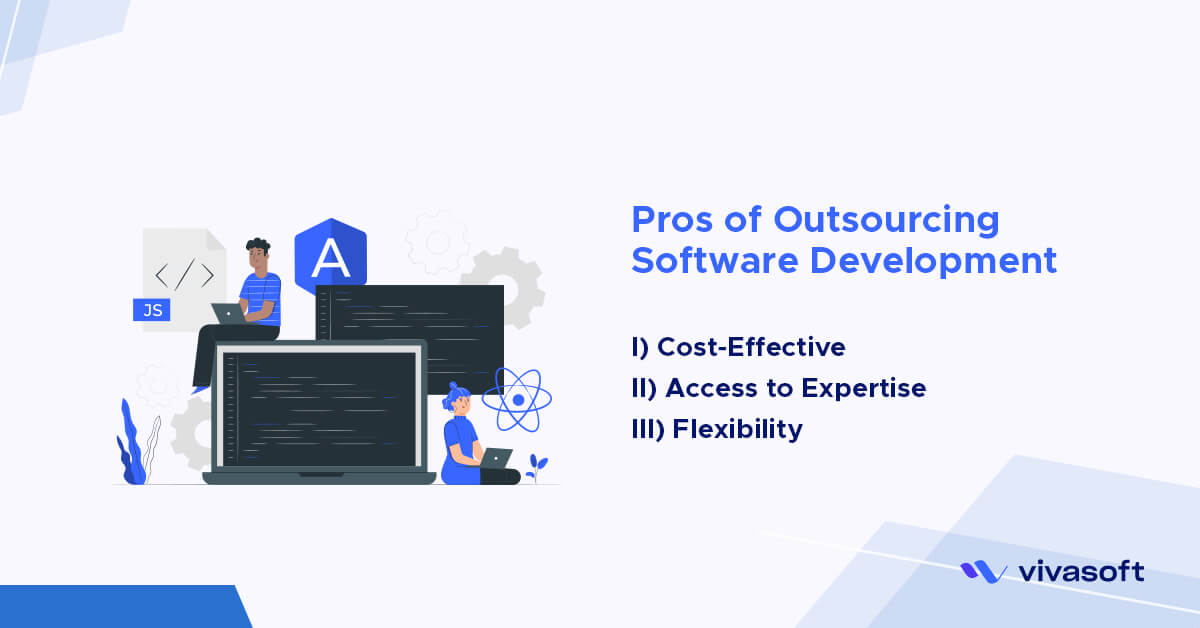
-
Cost-Effective:
Offshore outsourcing software development can be cost-effective as it eliminates the need for investing in recruitment, training, and infrastructure. It also allows businesses to tap into a global pool of talent with varying skill sets and experience levels. -
Access to Expertise:
Outsourcing provides businesses with access to a diverse range of expertise and experience. Businesses can hire dedicated software development teams with specialized skills to work on their project. -
Flexibility:
Outsourcing allows businesses to scale up or down their development team according to the project’s needs. This provides greater flexibility in terms of resources and budget.
Cons
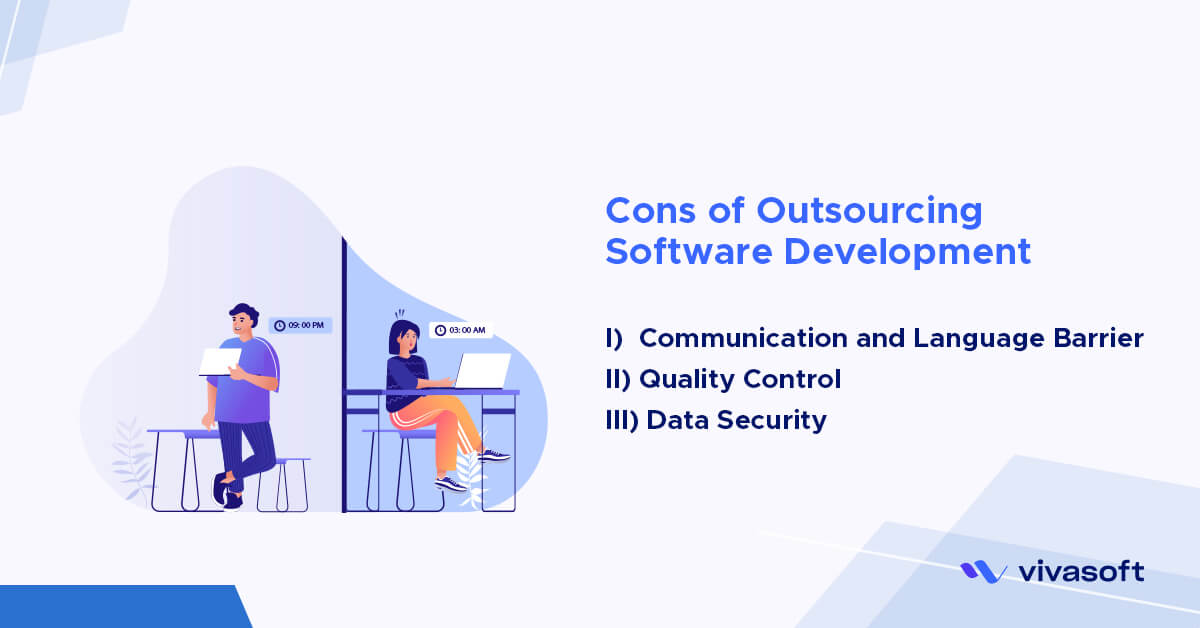
-
Communication and Language Barrier:
Outsourcing can be challenging due to communication and language barriers. Miscommunication can lead to misunderstandings, errors, and delays. -
Quality Control:
Outsourcing requires diligent quality control, as businesses have limited control over the development process. Businesses need to establish clear communication channels and set up proper feedback loops to ensure that the final product meets their expectations. -
Data Security:
Outsourcing software development involves sharing sensitive information with third-party vendors. This can be a security risk if proper security protocols are not in place.
What to Consider When Choosing Between In-House and Outsourced Software Development?
Choosing between in-house and outsourced software development can be a daunting task. Businesses need to evaluate their specific needs, budget, and expertise level. The following are some factors to consider when choosing between in-house and outsourced software development:
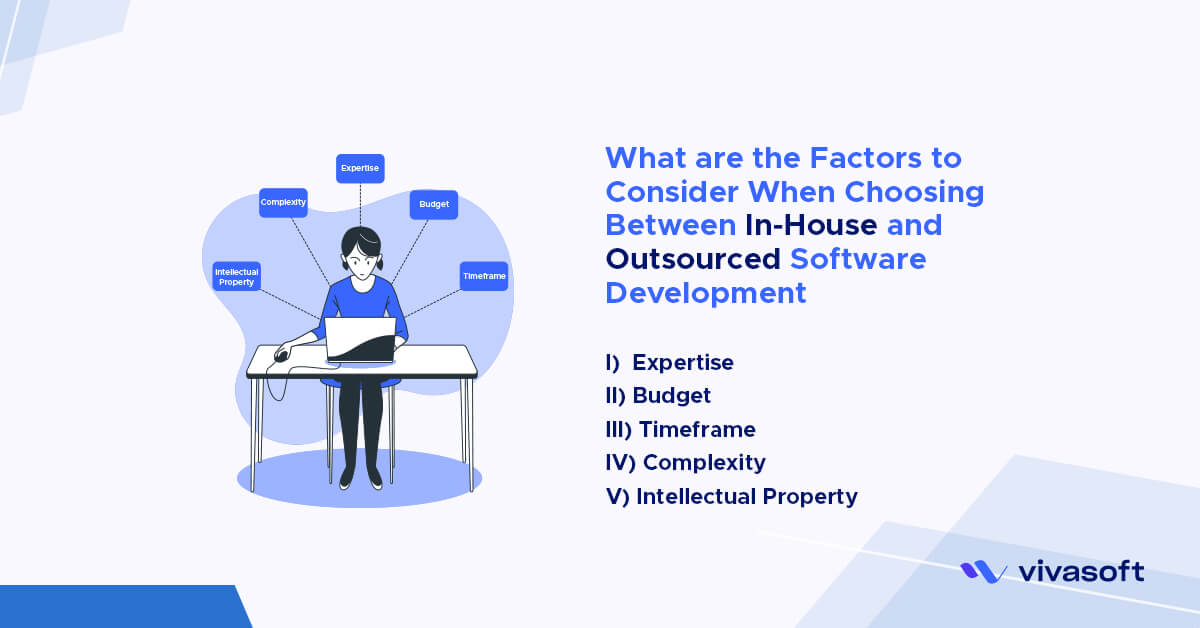
1. Expertise
Analyze the development team’s technical abilities and knowledge. Yes, south Asian countries have a reputation for generating highly skilled software developers, but it is essential to verify their technical skills prior to employment.
2. Timeframe
Evaluate the project’s timeframe and determine whether you can meet the deadline with an in-house team. If not, outsourcing may be a viable option as it provides access to a global pool of talent that can work on the project around the clock.
3. Complexity
Evaluate the complexity of the project and determine whether your in-house team has the necessary skills and expertise to handle it. If not, outsourcing may be a viable option.
4. Intellectual Property
Evaluate the sensitivity of the information that will be shared during the development process. If it’s highly sensitive, in-house development may be a better option as it provides better control over data security.
5. Communication
Evaluate the level of communication that will be required throughout the project. In-house development allows for face-to-face communication, which can be beneficial for more complex projects that require constant feedback.
6. Control
Think about how much control you want to have over the development process. Outsourcing may provide less control over the process, but it can also provide more flexibility in terms of adjusting resources and scaling the project.
In-House VS Outsourced Software Development
The following table summarizes the pros and cons of in-house and outsourced software development:
| Factor | In-House | Outsourcing |
|---|---|---|
| Cost | High | Low |
| Control | Full control | Partially controlled |
| Expertise | Limited | Access to global talent |
| Timeframe | May take longer | Completed quickly |
| Quality | High | Very high |
| Flexibility | Limited | Highly flexible |
| Data security | More control over security | Partially control over security |
| Risk | Lower | Potentially higher |
Why Vivasoft is a Reliable Outsource Software Development Partner
When choosing a software development outsourcing company, it’s essential to look for a partner that has experience in developing software applications similar to yours, good communication skills, and a proven track record of delivering high-quality software solutions within budget and on time.
If you decide to go for offshore outsourcing software development, it’s crucial to choose the right partner.
The following explains why Vivasoft is the best outsourcing software company-
Vivasoft, a South Asian company founded in 2016, specializes in IT consulting and custom software development. Its passionate and competent staff seeks to build digital experiences that enhance businesses and have a beneficial influence on society. The products of Vivasoft strive to simplify and improve people’s lives.
Vivasoft employs over 200 people who work to provide creative software development solutions that assist people all over the world. Their skill and love for their profession enable them to make everyone’s lives simpler. Their areas of expertise are:
- App Development
- SaaS solutions
- Team Augmentation
- Offshore office expansion
- MVP Service
- End-to-end Development
- QA and Testing
- Cloud Computing Solutions
- Agile Products
Final Thoughts
In conclusion, choosing between in-house and outsourced software development depends on a variety of factors such as budget, expertise, timeframe, complexity, and intellectual property. Both options have their pros and cons, and businesses need to evaluate their specific needs and circumstances before making a decision. Ultimately, the goal is to build a high-quality software application that meets the company’s needs and objectives, and both in-house and outsourced development can deliver that result.
At Vivasoft, we’ve taken the responsibility of many startup founders. Talk to us to explore your options in offshore software development.











